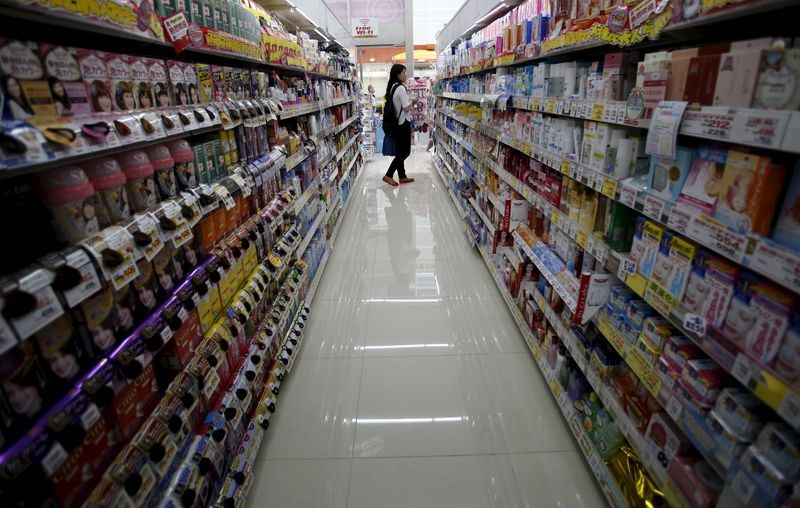Japan’s wholesale inflation stays elevated, keeps BOJ under pressure By Reuters
[ad_1]

© Reuters. FILE PHOTO-A shopper looks at items at a drug store in Tokyo, Japan, May 28, 2015. Japan’s core consumer prices rose 0.3 percent in April from a year earlier, government data showed on May 29, keeping inflation distant from the central bank’s 2 percent ta
2/2
By Leika Kihara
TOKYO (Reuters) -Japan’s wholesale prices in January rose 9.5% from a year earlier, data showed on Friday, adding to growing signs of inflationary strains that could keep the central bank under pressure to phase out its massive stimulus programme.
While the pace of increase slowed from the previous month’s 10.5% rise, the data highlighted the cost-push pressure companies were facing for products ranging from food, steel and chemical goods.
The increase in the corporate goods price index (CGPI), which measures the price companies charge each other for their goods and services, largely met a median market forecast for a 9.6% gain. The index, at 119.8, matched a record high hit in December, Bank of Japan (BOJ) data showed.
The data suggests that Japan’s core consumer inflation, which hit a 41-year high of 4.0% in December, will likely remain well above the central bank’s 2% target in coming months.
“Firms have yet to fully pass on past rises in input costs, which is keeping inflationary pressure high,” said Takeshi Minami, chief economist at Norinchukin Research Institute.
“We’ll likely see price rises slow ahead,” as the cost of imports slide from falling raw material prices and the yen’s rebound, he added.
BOJ Governor Haruhiko Kuroda on Friday stuck to his view the recent spike in consumer inflation was largely due to surging import prices, and expects a moderation later this year.
“We expect the pace of inflation to gradually slow in the latter half of fiscal 2023,” he told parliament. “We’ve yet to see inflation stably and sustainably achieve our 2% target.”
Markets are rife with speculation the BOJ will phase out its yield control policy under a new governor, who will succeed Kuroda when his second, five-year term ends in April.
[ad_2]
Source link


